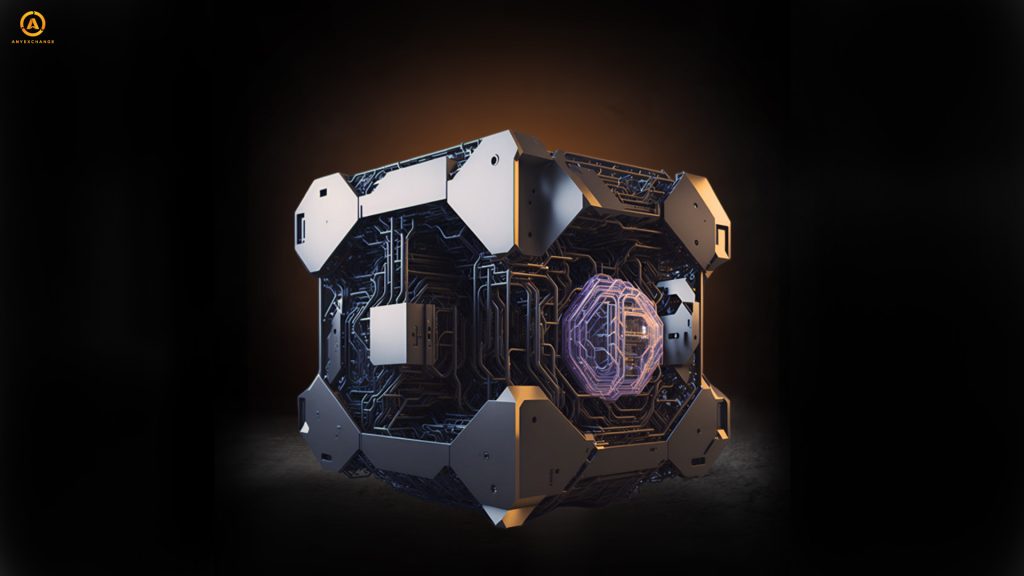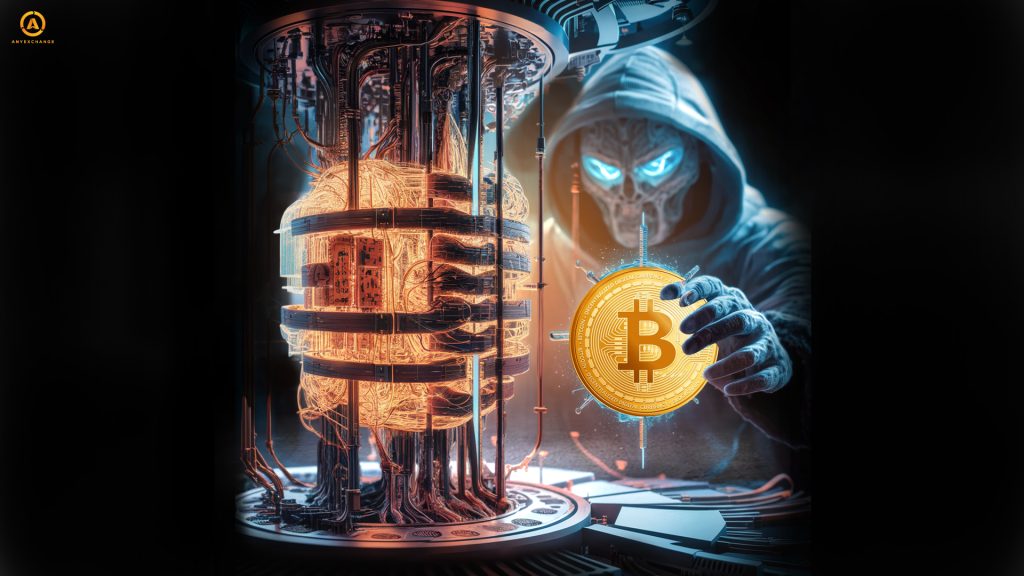
Quantum computers are predicted to revolutionize computing technology, and it is widely believed that they pose a potential threat to the cryptocurrency industry. Is this the case?
We are all witnesses to the fact that technological innovation is changing the world at an astonishing pace. Quantum computing technology is gaining momentum before our eyes, capable of solving multi-level tasks in a matter of seconds that would take conventional computers decades of non-stop computing to accomplish.
Let’s understand how cryptocurrency and the quantum threat are closely related, and what impact quantum technology could have on the development of digital currencies and blockchain.
What is a quantum computer
A quantum computer (QC) is a computing device that operates based on the phenomena of quantum mechanics (the field of physics that studies the behavior of elementary particles at the atomic and subatomic levels).
A classical computer operates with binary units of information called bits, which can take the state of either 0 or 1. Bits can only have these two possible values, and every piece of information that passes through a classical computer is essentially a long combination of zeros and ones.
Quantum computing, on the other hand, shifts the paradigm of this methodology by using quantum bits (or qubits). Unlike classical bits, qubits are not bound to binary states, but are based on the concepts of superposition and entanglement (basic principles of quantum mechanics), and can therefore be in multiple states at any given moment in time. Superposition refers to the ability of a qubit to exist in a mixture of states. And the entanglement principle establishes a correlation between qubits, where the state of one affects the state of the other. These properties add computing power by creating one large quantum state for the entire computing systеm.
These distinct properties exponentially increase the computational power of a QC compared to a classical device. Imagine a maze, from which you must find a way out. What would a conventional computer do? It would bypass all corridors, one by one, until it completes the given task. A quantum computer works on the principle of flow, which enters the maze and flows in all directions simultaneously.
How can quantum technologies influence the world of cryptocurrencies?

Experts have coined the term “quantum superiority”, which refers to the successful solution of QC tasks that are impossible for a traditional computer. To date, the world is testing a number of promising models of quantum computers, but none of them has not yet surpassed in performance the most powerful of the created classical supercomputers.
During the last decade, however, rumors of quantum supremacy have been circulating with varying degrees of intensity. The news of its achievement by one or another company has already caused a stir in the cryptocurrency market. In particular, this is what happened when the NASA website reported in 2017 that Google had created a computer with quantum superiority. The announcement quickly disappeared, but it had certain consequences, because the time of its appearance coincided with the decline of power in the Bitcoin network. The market panicked. Traders then dumped a significant amount of Bitcoins, fearing that the coincidence could indicate that the main cryptocurrency’s network had been hacked with the help of quantum decryption tools. The exchange rate of the coin then fell significantly, which affected the market situation in general.
Such sentiments persist to this day: the crypto community is anxiously watching the development of quantum computing, trying to understand the extent and direction of its impact on the blockchain and cryptocurrency market.
How real is the problem?
Quantum algorithms could have a significant impact on cryptography and blockchain security. Current encryption methods are based on the complexity of factoring huge numbers and multi-level mathematical problems using conventional computers. While the potential speed of solving such problems for QC could make existing encryption methods vulnerable to attack. A Deloitte study found that if a full-scale quantum attack were launched on the Bitcoin network today, 25% of all coins in the world’s largest blockchain could be stolen. The consequences of such an intervention for the crypto sector and the global economy are hard to even imagine: billions of dollars leaked, major blockchains crashing, and the entire systеm of decentralized finance collapsing.
Or, if we assume that a quantum computer will be able to use Shor’s function, it will only take a few hours to determine the private key as a result. With a classical device, a similar operation to decrypt the public key would take millennia.
There are also potential problems for blockchains that run on a proof-of-work (PoW) consensus algorithm, due to the unpredictability of replacing traditional mining hardware with quantum mining hardware. This could lead to an uncertain future for bitcoin and other PoW-based cryptocurrencies, destabilizing asset prices and centralizing mining capacity.
Will the quantum computing era disrupt the cryptocurrency world?

Not likely. Quantum computers and encryption using quantum computing methods are still in the early stages of development and face serious technical and theoretical challenges that require further study.
Quantum-resilient blockchain

Quantum computing has the potential to both crack previously unbreakable forms of encryption and create innovations in cryptocurrencies and the blockchain.
The concept of a quantum blockchain describes the integration of two advanced technologies: quantum computing, which enables much more powerful and efficient data processing than traditional computers, and a decentralized systеm of ledgers (blockchain), which provides secure and efficient data storage and transfer. The combination of these seemingly contradictory yet complementary approaches could fundamentally change the way humanity thinks about the future of computing.
In a sense, blockchain encryption and quantum cryptography are competing to win the cryptographic race. And one of the key questions for the crypto industry today is whether QC can evolve fast enough to crack the blockchain before it’s ready for it.
What blockchain problems can be solved
If quantum computing and blockchain come into conflict, it could be a disaster of epic proportions. However, if cryptography continues to evolve, creating increasingly robust encryption methods, or if quantum encryption itself is integrated into the blockchain, the combination of these promising technologies could help create a more efficient and democratic internet with great potential to positively impact global processes.
What is the market situation
How blockchains will deal with the threat of new technology
The threat of quantum computing is only a potential problem for the crypto industry. The development of blockchain technologies is well ahead of the development of quantum computing, minimizing the possible suddenness of the latter’s progress. Experts believe that quantum-resistant blockchains will appear much sooner than the devices that will be able to hack them. Therefore, the probability that we will wake up one day and witness a revolt of quantum machines against the world of cryptocurrencies is negligible.
Thank you for your attention.
Through our exchange you can convert digital assets at the most favorable exchange rate . We carry out money transfers with electronic money and cash all over the world.





